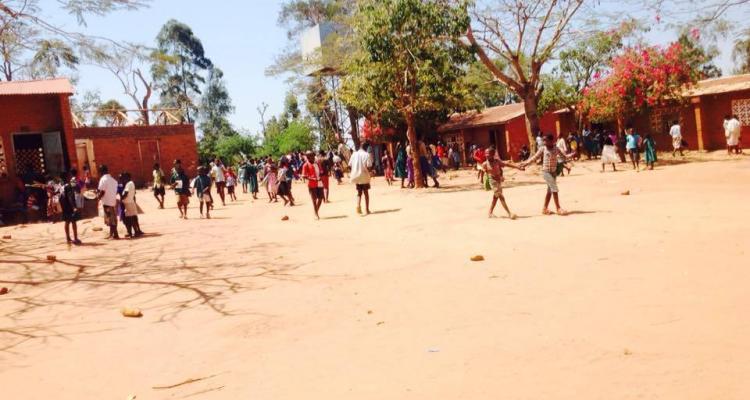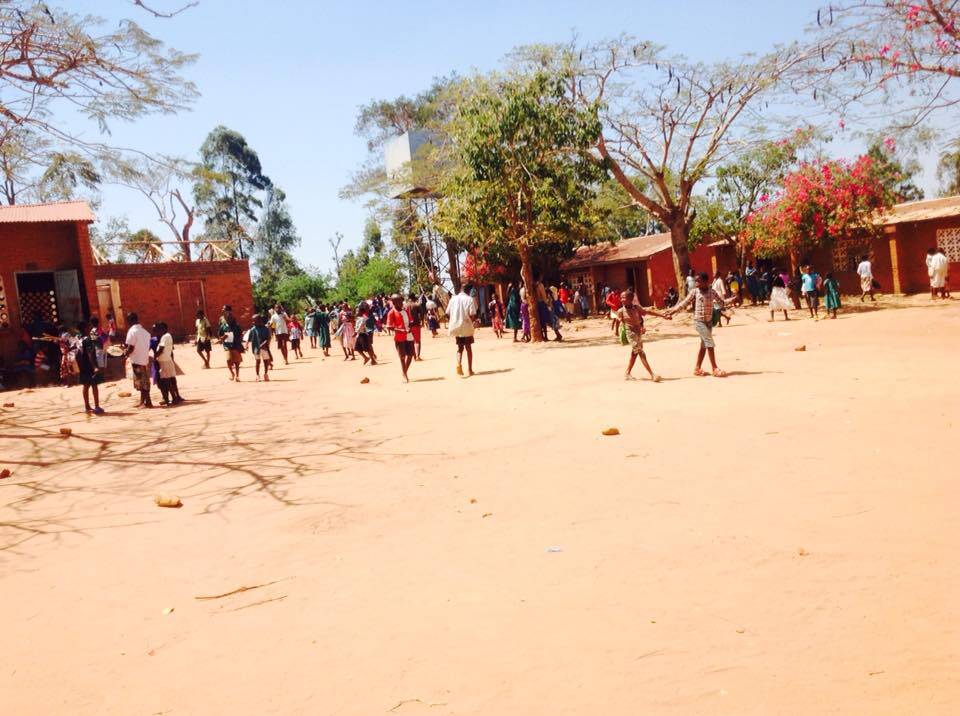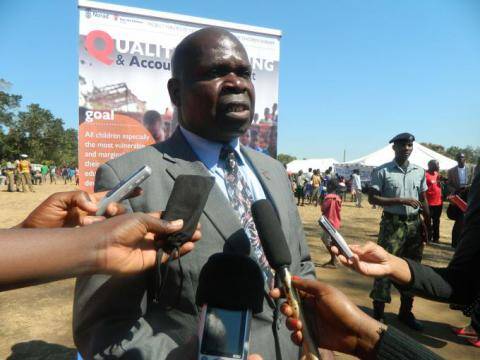
As the country’s education sector continues to sail through tough times, this publication has discovered that about 10 primary schools in the northern region are running without qualified teachers.
This is coming at a time the Malawi government is failing to deploy qualified teachers it already trained in various teacher training colleges across the country.

A spot check our team conducted in Mzimba and Nkhatabay established that in some primary schools, classes were suspended long time ago owing to absence of teachers.
Primary schools like Chithowi, Kang’oma, Mazamba and Chitheka in Nkhatabay are running without qulified teachers.
In Mzimba, primary schools like Kamalibwe, Chivwi, and Luviro are equally depending on volunteer teachers, most of them unqualified.
“We just help our children ourselves, otherwise, government is yet to send us teachers here. We have tried to reason with education authorities on the issue but to no avail,” said Davis Zgambo, one of the volunteers at Kamalibwe primary school.
Some of the schools depend on student teachers who are posted in such schools for their practicals. But when the student teachers are done, they leave learners hopeless.
The experience according to Thembozawo Chirwa, who has been assisted by volunteer teachers all her primary school, is a setback to academic success.
“We are often sent back home, especially this time when our teachers are busy cultivating their fields. As someone who is preparing to sit for national primary school exams, I’m worried about my academic performance,” she said.
Most other scholars in various rural schools shared the same sentiments. On the other hand, our team further established that the teacher deficit in such schools has fuelled high drop out rates in rural areas.
One of the traditional leaders in the district, Inkosi Kampingo Sibande of Mzimba expressed dismay at the status quo.

“This is leading to early pregnancies and drug abuse among our children here because in absence of teachers, they have nothing to do at school than smoking and drinking alongside other immoral activities,” he said.
District education managers in the two districts said they are aware of the problems but referred our team to the ministry of education.
In an interview, minister of education, Dr. Emmanuel Fabiano conceded that government has delayed in deploying teachers in rural schools.
“Therefore, we would like to assure you that we are sourcing funds which will enable us to deploy these teachers and train more others. We don’t want to employ them and later fail to meet their welfare that’s why we are trying to work things out, before hiring them,” he said.
Civil Society Education Coalition executive director Benedicto Kondowe described the current state of affairs as distressing.
He said it is unfortunate that government and other stakeholders don’t care about people living in rural areas in as far as education is concerned.
“Something has to be done, if we are serious about the future of our country. Children in rural areas deserve a better future as well,” he said.















Komanso zachuluka ndi izi zama following husband nde onse ali mu town.these policies being implemented are so discouraging.look at the treatment these pple get from above . How do you expect teachers to work to their standards.anakupusitsani ma sir ndi u executive officer ife alonda nde kumaweluka ndi ma jumbotu.inu zs ziiiiiiii
That’s true even in community day secondary schools , they used volunteers to teach form 1 , indeed in rural areas they don’t get quality education.
Ngati mphuzitsi sakulandila ndalama angatani ana akasewele basi
It’s not a big problem, just ten. I thought you would say a hundred
Kkkkk your are a funny guy
Choselanitu bush allowance muone ineso wa ku city basi.ndzispender 5000 wakubank ? Meeee za mano pansi
Do something
We Are Just Staying Outside Here Waiting For Postings Ipte 9.Still Waiting Patiently Regardless Of Many Problems Whch We Are Facing
How can there be a teacher as if they are paid?
Whom to blame????
No wonder,MG iz to b blamed
The problem is our policies! Imagine you have attended your school successifuly,and somebody tells you to go and teach to aplace very far from town no electricity,no good house and when you want to go to the bank you have to spend half of your salary! why dont the government introduce an attractive package for rular teachers? basi mumafuna anaanzanu akafere kumudzi opanda kalikonse azikakhalira ngongore? wake up Malawi its hightime!
The development is really worrisome and very disturbing, so should we say the learners education should wait until they realise funds for the teachers? This is unfair to children in the villages because its like we are denying them their right to education
President Peter Muthalika’s achievements. Malawi is fast going back to 1950s. Believe me.
y my country malawi.talembaniko ntchito aphunzitsi akungokhalawa.it gud at training teachers by failled to employ them.yyyyy?????
God Will Help Us Don’t Worry.
I come from Chitheka myself, this xul is run by qualified teachers, the problem z dat the teaches r very few to manage the whole xul!!!
too bad
malawi 24 mbuzi,atsogoleri mbuzi anthu tose mbuzi chfukwa chowonelera zmenez aphunzitsiwo mbuzi chfukwa chomaphunztsabe while being paid peanut salary SIYANI UPHUNZITSI MUKHALE M’MAGULU NDIKUYAMBITSA MA PVT XULZ boma lilawe ululu
Qualified Teachers ali ku Jon kusanduka ma garden men ; ma care taker ; security personnels ; nkumalandira ma Rand pa Sabata,
The govmnt is recruitin tchers almost yrly,where r they goin?This problem will not end if tchers welfare isnt considered
Dziko lamawi asogoleri ake onse kumoto kwamulungu ndalama akuthera kugula ma toilet odula 4what pamene mphunzitsi akuvutika ndi kasaraly yolandila mlonda wapabank kuchita kufana ndi mphunzitsi pamene awo kut afike pamene alipo chifukwa cha mphunzisi yemwe akunyozedwayu.
Mwa anthu onse ogwila ntchito m`boma m`phuzisi ndi amene amatengedwa chitsilu chodya choko kumwela ink kugona pa bulaki bodi kusamila dasitala kufunda bukhu. Timayiwala. kuti popanda m`phuzisi palibe u doctor, uproffeser , uloya what ever.
Yes zowona
yes man, tell them.
Vuto ndilakuti Atumbuka alibe ulemu amazitenga ngati ndimadolo ndichifukwa Boma silimakhala nawo busy
weak minded pple like you are at 2% the whole malawi.
Nonsense…
Kkkkkkkk ok
What happened to the bush allowance that was introduced to promote teachers working in the rural?
No right to education in rural. Two teachers cant manage 8 clases. This National Reading Programme wl not work In rural school.
Chikhalilecho aphumzits ena sadalembedwe ntchito
Education shall be stupid lyk this until government raises teachers welfare….
WELCOME TO THE GREAT ILLUMINATI TEMPLE WORLDRICHS . If you want to see the truth you must be brave enough look, join the brotherhood and see yourself reach potentials in any field of life you choose, music, politics, sports,comedy or want to be rich powerful, famous and protection, good business connections in any sector of the world or your country Enterprises etc…and other benefits attached. To join the Illuminati brotherhood contact WhatsApp +2348135489075 or email : illuminatipreist@priest.com
one of ur sensible news, z dis one new24
Agundika Kupweteketsa Ana Kumaweruka Mochedwa Ati Apititse Patsogolo Maphunziro, This Is Torture And Abuse Kwa Ana. Mmalo Mopanga Motivate Aphunzitsi Ndikupanga Ensure Kut Xool Iliyonse Ikhale Ndima Qualified Teachers Of Mayb Ova 5, Akupweteketsa Ana Ndi Njala, Useless Policies & Stupid Adminstn
Akakhala kuma office kwawoko sayamba afunsana Kaye nzeru….a mangokhazikitsa zinthu osafufuza zotsatira zake. Ana akukomoka nzisukulumu kamba koonjezera nthawi yowelukira
Kukhala kumalawi.ndichimodzimodzi kusetela leza kusonyeza kulimba m’tima
Should we expect people to jump into teaching career after all the bad treatment these people have suffered under the system?
Not Only That Area We Have Nsanje.Chapananga ck ,chikuli Bt,mulanje Mloza There Are No Qualified Teachers
Chigawo chapakati ndi kumwera aliko? Osangoti Malawi yonse Xool zambiri nde ma game awo
Not Only In Mzimba But Also In Chikwawa Especially At Bereu And Mkumaniza Girls Are Selling Their Body Toget Upkeep For Buying Their Needs
In each district in Malawi u’ll find that there is really shortage of teacher i.e to my area i havent seen any primary xul with 7 or 8 qualified teachers if they’re 5 it means that they are so many & i wonder if it is true that the education standard is @ higher level,think ov it the one’s who are responsible for these issues
Kkkkkkkkkkkkkkk anathawako kwawo atumbuka kumakamira kuno kumwera ndi pakati. Kuchenjera mochedwa
Kwanuko Kuli Mbuli Zambiri Kani Amafuna Atipondeleze Kut Mwina Mungakhale Ma Brains Ngat Akumpoto But Dey 4get Its Innate! Mbuzi Iwe Eti?
Mbuli ndinu amene mukuchoka kwanu
Tiyeni tinene zaumunthu this is public you people*payere*
Payere z talking shit atumbuka ndi madolo kukalanda ufumu kwao kamba ka nzeru zawo
Udolo uli pati munthu kumathawa kwanu? I see that education has not benefited you. What I know education makes someone to be patriotic to his own country and be proud of own origin. Atumbuka ambiri kwanu simufunako, ana anu ambiri abadwira kuno kumwera ndi pakati ndipo akula kwao osapitako. Mumati mukangobwera kuno kuthamangira kugula malo mukatero kwanu osapitako
malawi belongs to tumbuka’s pple amaziwa ntchito zose kukakhala bwana kumuzi kwanu inu mulichigonele kumwela konko ndiye dolo ndani alanda malo ose kwanuko inu kuzakhala ma foreigner muli kwanu kkkkkkkkkkkkkkkkk
Mukadakhala anzeru bwezi mutatukula kwanu.
atumbuka amakuthandizani kumwera ndi pakati zose zimachokela kumpoto kupita kwanuko kopanda atumbuka ndinu ndani inu kip on talking atumbuka pasogolo inu pambuyo pawo
Patsogolo pake pati? Dzimvereni chisoni.
empty tins alwez make alot ov noise kuonesa umbuli pagulu la anthu akadali kubwela atumbuka kumwera uko kaya ndi pakati ziko ndi lawo palije chimene mungapange nawo wagwa nayo man kkkkkkkkkkkkkkkk
ophunzira azaphunzirabe!
Poor Management !!!!!
Its not poor management, amathawako wokha atumbuka kumeneko. Just imagine how many teachers who are tumbuka are stuck in the central and southern regions? Umfiti munyanya mchifukwa chake mumathawako kkkkkkkkkkkkkkk
Expect to be more tougher than this. Ku education kwachuluka zibwana.
Its true schools like mthabi thabi (mzenga) Nkhata-Bay.the whole school has only 2 qualified teachers.
sikumpoto kokha mavuto awa ali palipose,ngakhaleso mma commmunity secondary schools aphunzitsi ndi ochepa amene alipowoso si aliso well qualified,akungomtenga munthu oti amaphunzitsa std1 kuprimary kukamaphunzitsa kusecondary,maphunziro abwino adapita ndi kamuzi..
Ife tikutuwa kuno titakhoza bhooso maesoo aaaa kaya zanu izoo
this can’t happen